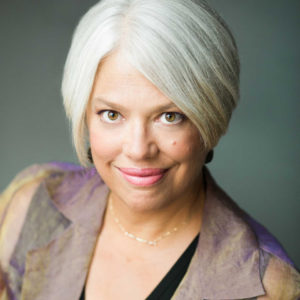It's the stuff of nightmares, learning that a loved one has died long before their time. For Orpheus, his beloved Euridice died because of a snake bite, but for composer Ricky Ian Gordon, his partner succumbed to illness.

Kathleen Kelly is the pianist who will be performing the work, along with soprano Monica Dewey and clarinetist Marissa Mitchell.
"I fell in love with a man named Jeffrey Grossi in the tail end of '91," Gordon said. "On our very first date he told me he was HIV-positive and, you know, at the time you knew that just meant, 'Oh, he's going to die.' And so, I just decided that I was going to love him right out of this world."
That love sprouted into a relationship that lasted until 1996 and resulted in Gordon's now world famous reimagination of the classic Greek myth "Orpheus & Euridice: A Song Cycle in Two Acts." Now over a decade since its original release, it's set to premiere at the Kerrytown Concert House, put on by the Arbor Opera Theater on Jan. 11 through 13.
"The moment that it popped back into my head it felt like the absolute fit for that space in that part of our community next to Braun Court," said the theater's Artistic Director Austin Stewart. "Given how present Ricky has been in Michigan over the past years — with [the opera] '27' with the Michigan Opera Theatre and then his being the commencement for the school of Music, Theatre & Dance at the University of Michigan and the Michigan Opera Theatre in Detroit — it just felt right to continue to celebrate this artist with a piece that was so unlike his big grand operas. This really remarkably intimate work clicked as perfect in this space."
The three-person piece features soprano Monica Dewey as Euridice, clarinetist Marissa Mitchell as Orpheus and pianist Kathleen Kelly. Stewart and Kelly agreed that although the inspiration for this piece is LGBTQ-specific, all audiences alike will be able to relate to its subject matter.
"Especially with Ricky's own story of where he was in life when he wrote the work, but there's also a great universality in the story," Stewart said. "And that's why composers ever since opera was first invented have continued to return to the story of Orpheus and Euridice, this bond between two individuals that knows really no definition. While the personal story and how he approaches the text and reimagines it from his own experience, that's one of the real beauties of this story."
Gordon said that he got inspired to write "Orpheus & Euridice" soon after he was asked to write a 10-minute piece for clarinet, piano and soprano.
"I was sort of in a state. With Jeffrey things were declining sort of quickly, and it wasn't necessarily an ideal time for me to take a commission. I was also writing this opera called 'The Tibetan Book of the Dead,'" Gordon said. "I was writing that to help Jeffrey die. He asked me if I would help him die a Buddhist, so I decided to do an opera to put the teachings to music while he was here."
Gordon said he could only describe that period in his life as "surreal." Eventually, feeling drained, Gordon said he would only be able to write a clarinet and piano piece. As if commanded by the fates, it was that night that he had a vison involving the characters of the Greek myth.
"It was four in the morning. I got up, I went to the dining room table and I wrote the entire libretto. Around 5:30 Jeffrey got up and he could see I was sort of sweaty and crazy at this dining room table and I said, 'Oh my God, I just wrote this whole libretto about Orpheus and Euridice.' It was about falling in love, and then, instead of Euridice being bitten by a snake, she's robbed by Orpheus incrementally the way AIDS steals people from you sort of pound by pound," Gordon said.
That reality is demonstrated within the libretto: "As she slept, he wept bitterly and dearly. Growing more and more bereft when, in increments, she left."
Beyond including AIDS, however, Gordon's reimagination goes further and redesigns the treatment of the story's characters. Kelly said that one of the most exciting aspects for her about this performance is that Gordon reimagines Euridice's role.
"What strikes me about the piece is that it's the Orpheus and Euridice story, but the only person who's got text is Euridice. She sometimes speaks about herself and sometimes speaks about Orpheus, but the whole character of Orpheus is represented by the clarinetist," Kelly said, adding that usually operas focus on Orpheus' journey through the underworld to retrieve Euridice's life.
"[Because of that] Euridice became kind of a secondary character," Kelly said. "Ricky's composition turns that on its head a little bit and you get to hear from Euridice for an hour. I think that in itself is interesting and that's the driver of any other choices we might make as we put the piece together."
She added that this unique interpretation provides a storytelling challenge for her as a performer and it's something she's enthusiastic for audiences to see.
"That's what's exciting about chamber music: because your individual voice is very important and the possibility of in-the-moment collaboration and taking a chance and maybe doing something surprising," Kelly said. "Those doors are a lot more open than they might be in larger scale collaborations."
Gordon will be doing pre-performance talks before both the Friday and Sunday performances of the show. He said he's thrilled to have the Arbor Opera Theatre perform this song cycle, adding that watching different interpretations of his work can be immensely excited.
"It's great and it's moving and sometimes it's scary because you wonder if people are up to it," Gordon said with a laugh. "It always starts in your head and then when it's actually being performed it's up to people outside your head to make it work. So, when it's satisfying, it's like nothing else."
Kelly said that it's heartening to her to see operas like this one that bring modern stories to life.
"The big, popular operas that people think of as opera like 'La Boheme' and the big, old-fashioned works for orchestra and stage, I love those too, and there are universal aspects to those stories, but opera has relied for a long time on a rather small portion of its literature," she said. "Right now we're in a period where many other stories are being said operatically but opera singers are becoming more conversant in a wider variety of musical and vocal styles, and that's all becoming part of composition that's being seen as operatic."
For her, that influx of modern stories is vital for the medium.
"That's very important because this is what's going to keep blood flowing through the veins of the art form, which, after all, should be changing all the time because that's what art forms do."
The Arbor Opera Theater will host "Orpheus & Euridice" from Jan. 11 through 13 with special pre-performance lectures by the work's composer Ricky Ian Gordon. Find out more about ticketing and showtimes online at arboropera.org.










